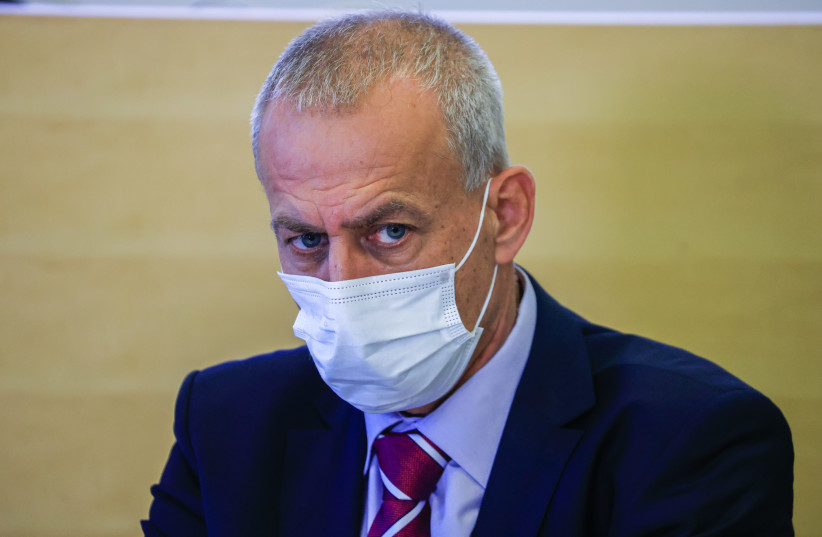A total of 21 Omicron variant cases have been identified in Israel, the Health Ministry announced Monday.
Of those, 16 were individuals who had recently returned from abroad, and specifically from South Africa, England, France, the US and the UAE. Another five had been in contact from inbound travelers from South Africa and the US.
Thirteen of those infected were considered fully protected according to Israel’s criteria (vaccinated within six months or with a booster, or recovered within six months or with an additional shot), while eight were not.
As of Monday, there were also 21 cases of people highly suspected of having been exposed to the variant who were waiting for the results of the genetic sequencing of their tests, five of whom had recently returned from abroad. Seven of the 21 are fully vaccinated, while 14 are not.
Another 17 cases were under investigation, but those people are considered to have been at low risk of having contracted Omicron.

Among all the 42 individuals either infected with the Omicron variant or likely infected, 25 were asymptomatic – 14 of them vaccinated and 11 not – and 15 presented symptoms (only five of them vaccinated). The status of another two individuals was not known.
Earlier in the day, the Health Ministry Director-General Prof. Nachman Ash said that Israel should extend the restrictions that it has passed to prevent the new coronavirus Omicron from spreading until more is known about it.
“Based on the data available today, there is no basis for changing the rules,” Ash said in an interview with the Hebrew website Ynet. “In my opinion, if this is the case when we need to make a decision, we will have to extend the restrictions until we have more data because at the moment, we still cannot say with certainty that the vaccine protects against the variant and therefore cannot allow vaccinated individuals to enter the country.”
After South African scientists announced that a significant rise in morbidity in the country was suspected to have been caused by a highly mutated variant on November 25, the government quickly passed a set of restrictions. They include the complete closure of the borders to foreign nationals and a requirement for inbound vaccinated travelers to quarantine for three days and take a second PCR test on the third day in addition to the one after landing. Moreover, around 50 African countries were designated as red – meaning that Israelis cannot travel there unless they obtain a special governmental permission and all returnees have to quarantine for a minimum of seven days, including a first day in a coronavirus hotel, until the first PCR taken upon landing returns negative.
These measures are currently set to expire on Sunday night. A decision regarding whether to extend them will be made based on the available information, the official said.
However, according to Ash, some data about vaccine efficacy might emerge in the upcoming days.
“The most important statistic is the vaccine resistance of the vaccine to the variant, that is, whether this variant is affected by the vaccine or not, whether we are protected from the vaccine from the variant or not,” he said. “I hope we will know more about this in the coming days, both through special lab tests that are being conducted and from information coming from the rest of the world.”
In light of the very low numbers of Omicron cases in Israel it is very difficult to reach this particular information from the data in the country, Ash said. So far, only 11 cases have been confirmed.
The official also called the first reports about a rise in morbidity among children “worrisome,” even though he acknowledged that the data are still very preliminary and not necessarily reliable.
The morbidity in Israel remains stable – and in the vast majority of cases caused by the Delta variant, which is still the dominant variant in the country.
Children under 12 constitute around half of the cases identified in the country in the past week.
However, the campaign to inoculate those ages 5-11 proceeds slowly, with less than 90,000 first doses administered in two weeks, out of over one million children eligible for a shot.
Exactly 521 new coronavirus cases were identified on Sunday. A week earlier they were 543.
The number of active cases and of serious patients remained stable, respectively at 5,300 and 112, similar to those of previous days.
